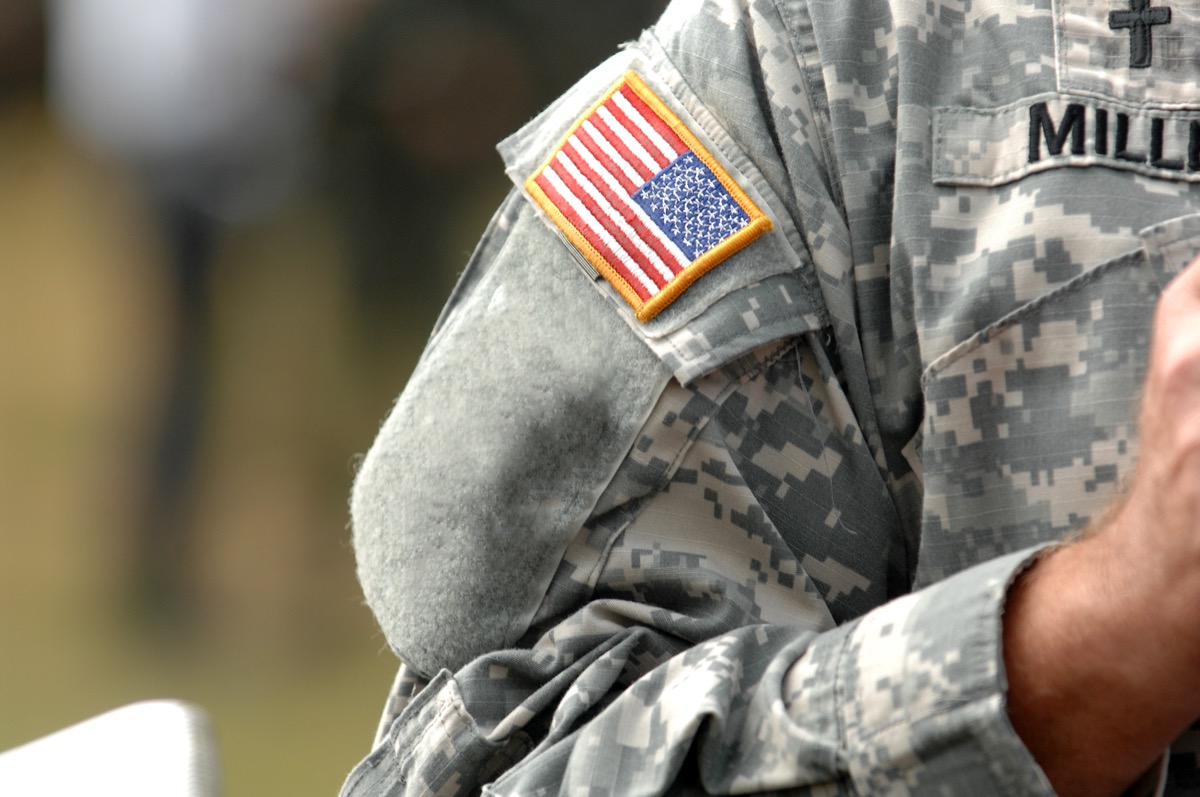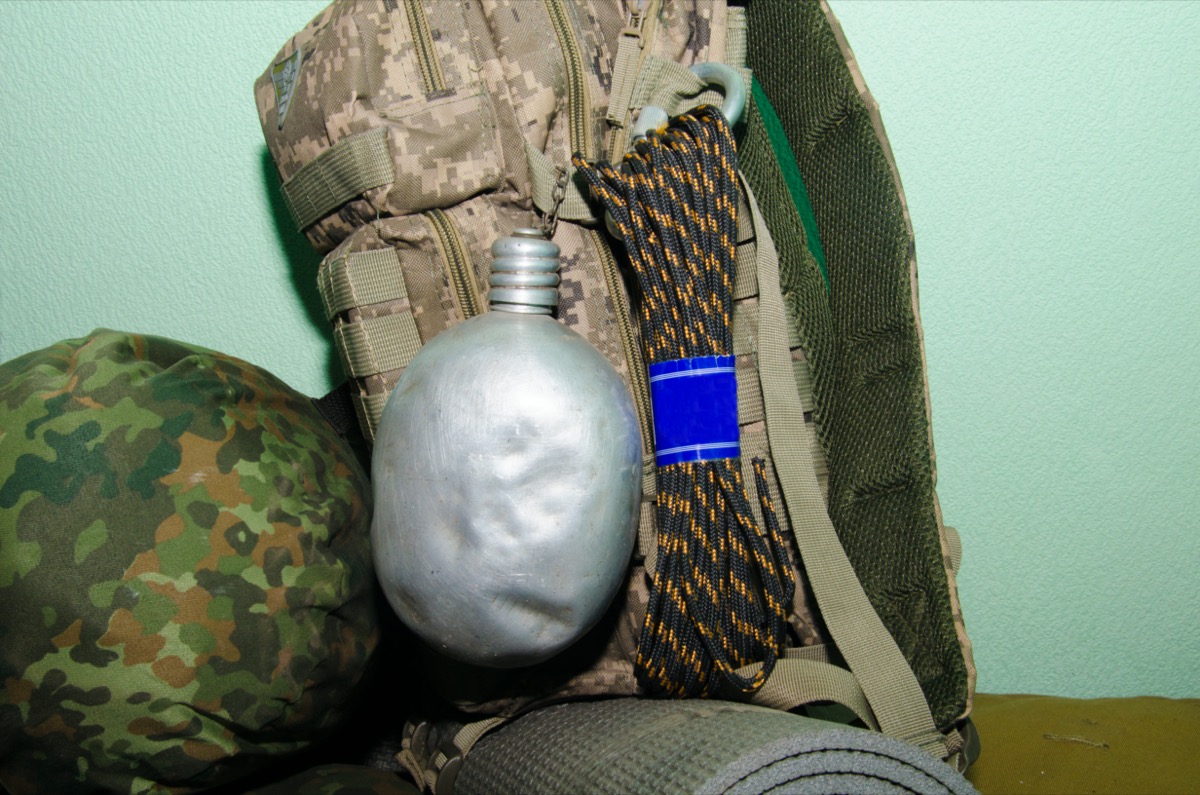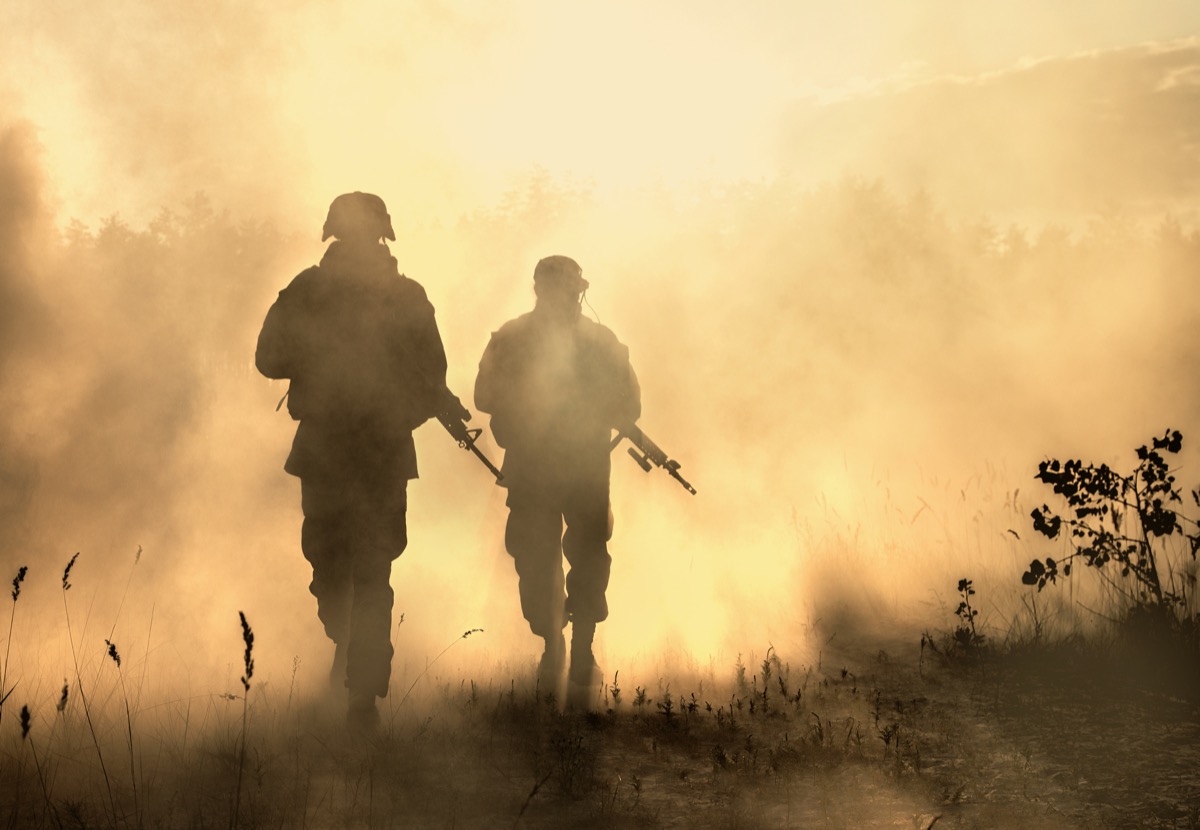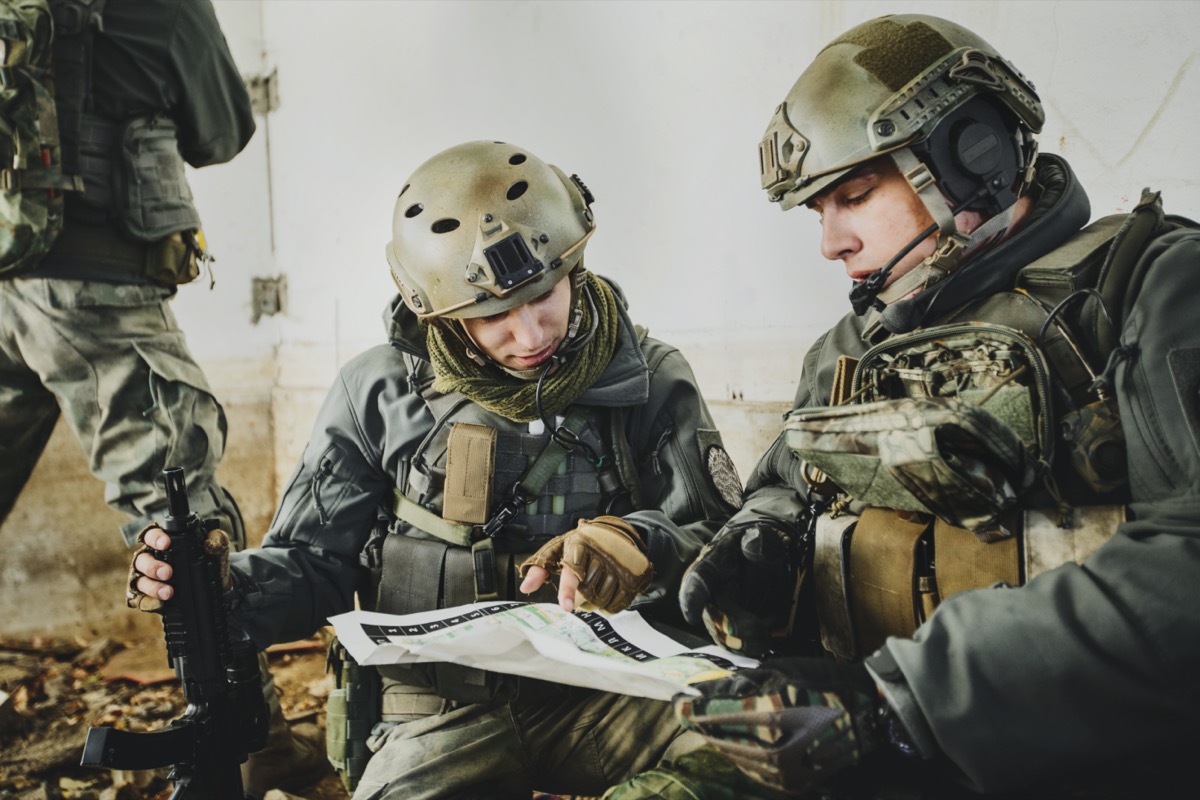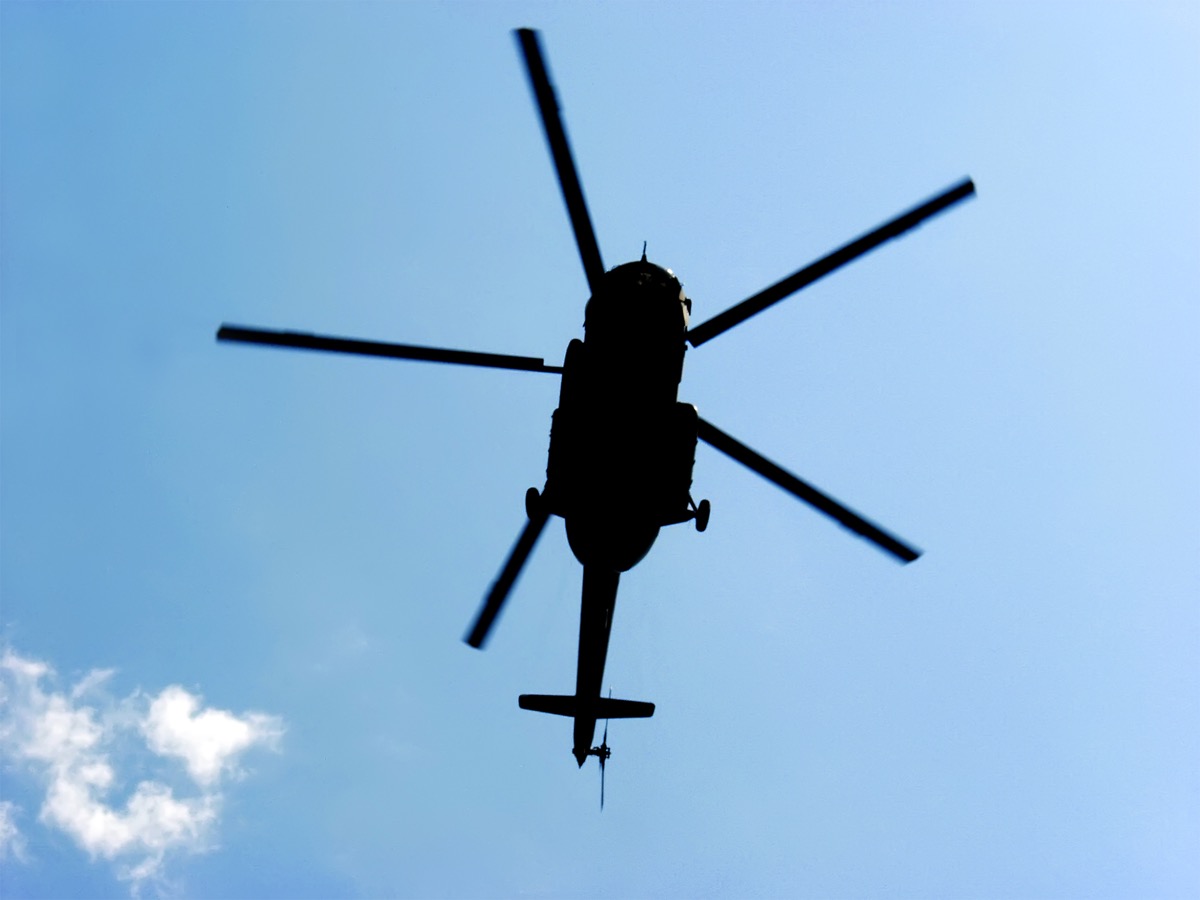Much like the British phrase “carry on,” “as you were” is a command given by an officer after a room has come to attention for their entrance. It signals that service members have permission to continue with their work. Example: “As you were, Cadets—I’m just passing through.” And for more inspirational words, check out the 30 Veteran’s Day Quotes That Show Gratitude For Our Military. Someone with no military bearing who is messy is said to be “ate-up.” Related nicknames include: chopped up, chewed up, Chewie, and Chewbacca. Example: “Can you believe he’s wearing tennis shoes with his uniform; how ate-up is that?” When an instructor breaks something down “Barney style” for the group, it’s explained as if it were to a child, just like the big purple dinosaur would do on the children’s television show Barney & Friends. Example: “What do you mean you don’t know how; do I need to break this down Barney style?” Someone who messes things up for the whole squad or platoon, by either pulling them into their drama or throwing someone under the bus. Also called Bravo Foxtrot. Example: “She told the First Sergeant about our plan; she’s a blue falcon.” And for more slang through the years, check out 100 Slang Terms From the 20th Century No One Uses Anymore. A military drill command that signals a formation of recruits to look towards their squad leader and position themselves equidistant from the soldiers to their immediate left and right. It’s also used to refer to things looking consistent. Example: “Get your uniform dress right dress for inspection.” A military term for sleeping bag. What else would you call the thing you rarely wash and spend a third of your day in? Example: “Get back into your fart sack and shut off that light!” A deployed service member who never leaves the FOB (Forward Operating Base) is referred to as a “fobbit.” The moniker is derived from the J.R.R. Tolkien’s 1937 novel The Hobbit, about a creature that doesn’t want to leave the Shire. Example: “He never volunteers to go outside the wire; he’s a total fobbit.” Recruits are told to hustle to a location by a certain time, then are instructed wait, sometimes for hours or days at a time. Example: “The hurry up and wait atmosphere of ride-share driving turned me off the job for good.” An infantry soldier or marine that doesn’t have much in the way of book smarts. He’s usually a special case (i.e., problem child). Example: “That knuckledragger just pulled the door off its hinge; he could have just pushed.” An acronym for Meal Ready to Eat, which is enough food to last a soldier a full day, tightly packaged inside a thick, brown waterproof bag. MREs are even sold online to civilians for use in survival kits. Example: “My favorite MRE is chili mac with jalapeño cheese.” In this case, STEAL stands for Strategically Take and Extradite to Alternate Location. Military personnel don’t steal things, they skillfully acquire them. Example: “If we want that blender for margaritas later, we should commence Operation STEAL.” You may remember World War II-era propaganda posters touting the phrase: “Loose lips sink ships.” And that’s very true of covert military operations. Operational Security (OPSEC) refers to keeping locations, troop movement plans, and other information about military operations confidential. It’s what got Geraldo Rivera kicked out of Iraq in 2003. Example: “I can’t believe you drew a map on live television; that’s OPSEC!” During helicopter extractions, rangers pop smoke grenades to mark their location so pilots know where to land. That’s the primary definition, but “pop smoke” is also slang for the end of a service member’s term of service. And the phrase can also refer to leaving a location in a hurry.ae0fcc31ae342fd3a1346ebb1f342fcb Example: “After eight years in the military, it’s my time to pop smoke.” You’ve heard pilots in movies say “roger” when responding on the radio, but what does “wilco” mean? It’s short for “will comply,” and is usually preceded by repeating the order given. Example: “Rendezvous at rally point alpha at 0600, roger wilco.” This World War II-era term is used to describe a superior who makes military life unnecessarily difficult, usually by insisting on strict adherence to rules. Example: “Master Sergeant had me clean the grout between the tiles with my only toothbrush, what a sad sack.” No, it’s not the fun place your kids go to build sandcastles. For military personnel, it’s a term used to describe a forward-deployed position that is located in a desert. Example: “I got orders for a tour in the sandbox.” This Navy term denotes rumor or gossip. It’s derived from “scuttle,” the nautical term for the cask used to serve water. Example: “I heard scuttlebutt that the next round is on the Lieutenant.” Semper Gumby is a play on the United States Marine Corps Latin motto “Semper Fidelis,” which means “Always Faithful.” Referring to the animated clay character Gumby, the pun refers to someone who’s always flexible. Example: “They want us to turn around and camp three miles back? Semper Gumby.” Someone who is in and out of the medical clinic daily is fondly dubbed a “sick call ranger.” This is because they go to sick call at first formation every morning, but somehow still show up for meals. Example: “Jason’s out again, earning his sick call ranger badge.” To be “squared away” means that one has outstanding military bearing, and whatever task they are accomplishing is completed to the letter. Example: “The table settings are squared away nicely.” This portmanteau of volunteer and told refers to when a superior volunteers you for a task that you know is mandatory. Example: " I didn’t want to, but I was voluntold by my dad to mow the lawn." A term used to describe an Army National Guard soldier or Navy or Air Force Reservist. They attend the same training camps as full-time Army, Navy, and Air Force, but they are only required to serve one weekend a month and two weeks of annual training every summer, unless their unit is called up for active duty deployment. Example: “I signed up to be a weekend warrior, but I just got orders to deploy.” When using clock directions, one imagines their body at the center of a clock with their eyes facing the 12 and the 6 directly behind them. So “watch your six” literally means “watch your back.” Example: “Hands on ten and two and watch your six, son.”
